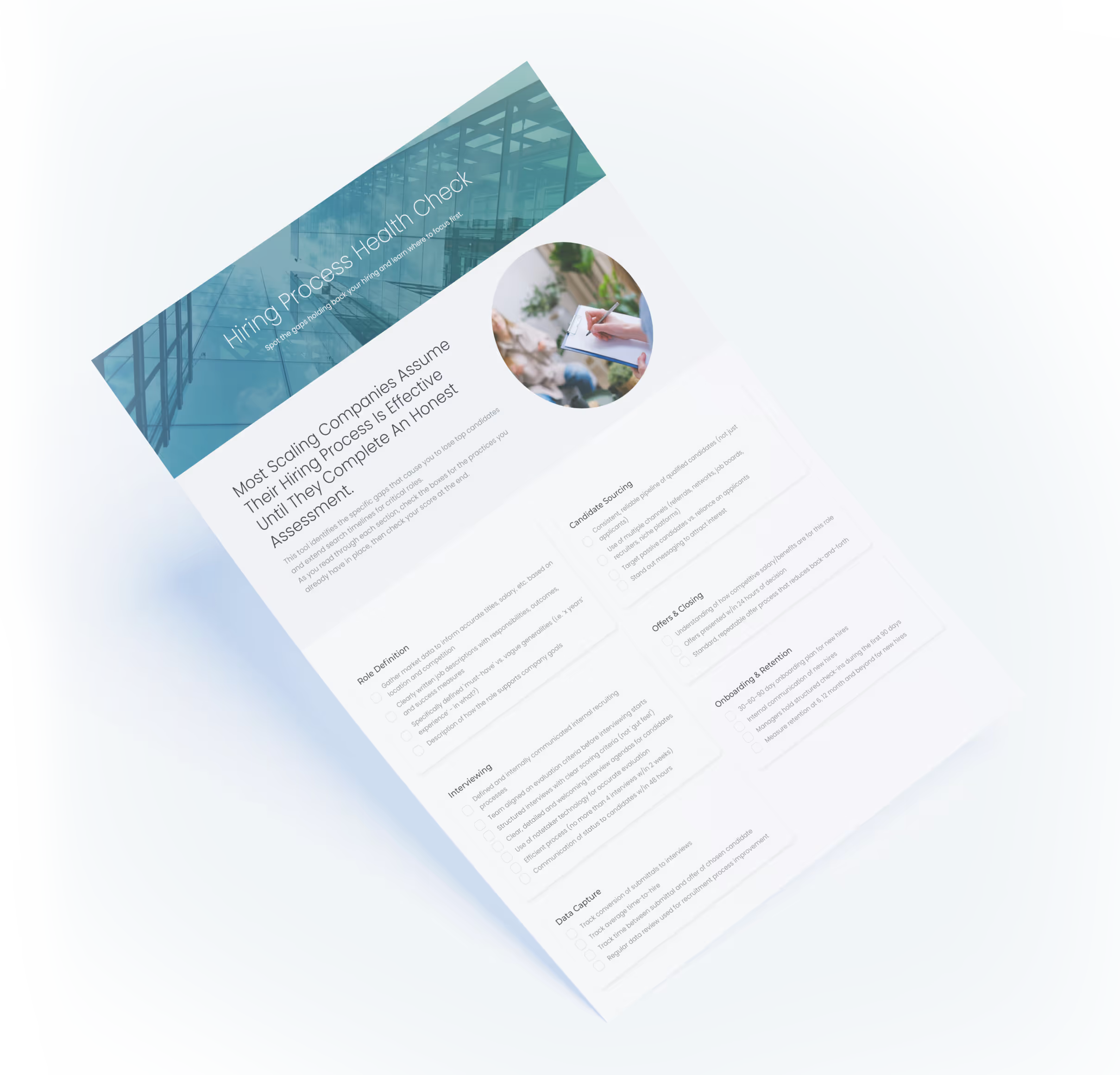Avoid These Common Mistakes When Working with a Recruiting Partner

Partnering with a recruiting firm can be a game-changer for companies struggling to hire top talent. These specialized firms bring expertise, resources, and an extensive network to help streamline the hiring process and find the best candidates. However, to maximize the benefits of this collaboration, it's important to be aware of common mistakes that companies often make when working with a recruiting partner. In this article, we'll explore these pitfalls and provide insights on how to avoid them, ensuring a successful partnership that yields remarkable results.
1. Lack of Clarity and Communication:
One of the most significant mistakes is failing to clearly communicate your hiring needs, expectations, and company culture to the recruiting partner. Without a thorough understanding of your requirements, you’re sending them off with a vague idea of what you want which will only lengthen the time to fill your role. Establish open lines of communication, provide detailed requirements, and engage in regular updates to ensure alignment between both parties.
2. Treating the Recruiting Partner as a Vendor, Not a Partner:
Viewing the recruiting firm as a transactional service provider rather than a strategic partner can limit the value they bring to the table. Involve them early in the hiring process, share your company's long-term goals, and collaborate closely to develop an effective recruitment strategy. A strong partnership fosters a deep understanding of your organization, enabling the recruiting firm to act as an extension of your team.
3. Lack of Feedback and Vagueness:
Effective feedback is crucial for refining the candidate selection process. Companies often make the mistake of not providing timely feedback to their recruiting partners, leading to missed opportunities and extended time-to-hire. Regularly communicate your thoughts on candidates, specifically where the candidate hit or missed the mark, and provide constructive feedback on how well you feel your partner is doing. This iterative feedback loop enhances the partnership and facilitates continuous improvement.
4. Failure to Leverage the Recruiting Partner's Expertise:
Companies sometimes overlook the wealth of knowledge and insights that recruiting partners possess. These experts have their finger on the pulse of the talent market and can offer valuable guidance on industry trends, candidate expectations, and innovative hiring strategies. Engage in meaningful conversations, seek their input, and leverage their expertise to optimize your recruitment efforts.
5. Neglecting the Relationship Building Aspect:
Building a strong relationship with your recruiting partner is crucial for long-term success. Some companies make the mistake of only engaging when they have an immediate hiring need, which limits the potential of the partnership. Foster a relationship based on trust and collaboration, maintain regular contact, and involve the recruiting partner in your talent acquisition strategy discussions even during periods of low hiring activity.
Working with a recruiting partner can be a strategic move for companies seeking to overcome hiring challenges and attract top talent. By avoiding common mistakes such as poor communication, failing to leverage expertise, and neglecting relationship building, you can foster a successful partnership that delivers exceptional hiring outcomes. Embrace the role of your recruiting partner as a true collaborator, and together, you can transform your talent acquisition efforts, attracting the best candidates and propelling your organization towards its goals.
Get Your FREE Hiring Process Health Checklist

